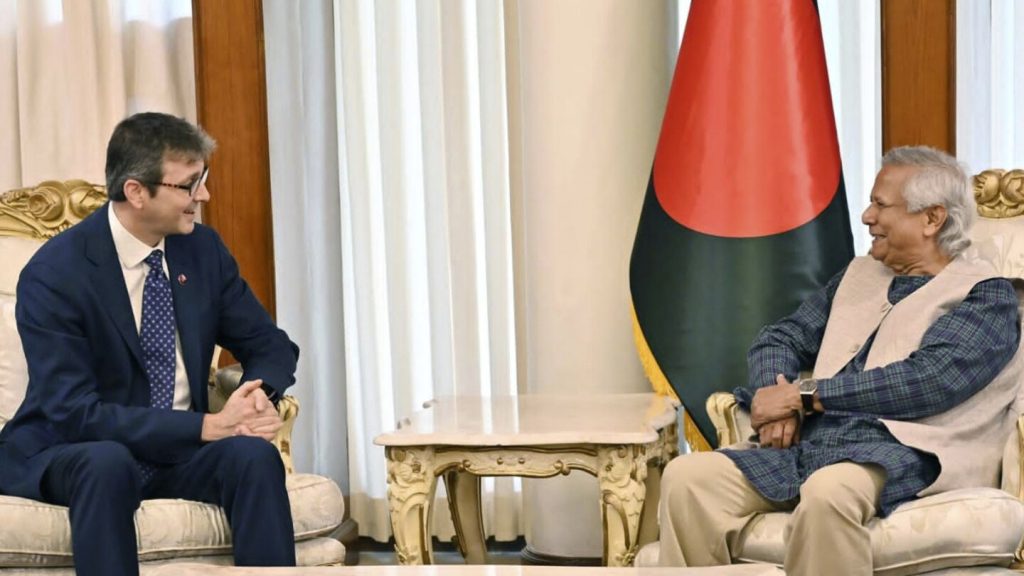A high-level U.S. delegation recently met with Muhammad Yunus, the head of Bangladesh’s interim government, to discuss fostering inclusive economic growth. Yunus took over after former Prime Minister Sheikh Hasina fled the country amid accusations of corruption and human rights violations. During Hasina’s rule, Bangladesh enjoyed close relations with India, China, and Russia, who heavily invested in the country’s infrastructure development. The U.S. has also become a significant foreign investor in Bangladesh during Hasina’s tenure.
Yunus expressed his desire for U.S. support in rebuilding the country, carrying out vital reforms, and recovering stolen assets. He emphasized his administration’s focus on resetting, reforming, and restarting the economy, initiating financial sector reforms, and fixing institutions like the judiciary and police. The U.S. delegation, led by Brent Neiman from the U.S. Department of the Treasury, included representatives from USAID and the Office of the U.S. Trade Representative. They also met with various officials in Dhaka, including Touhid Hossain, the country’s adviser to the Ministry of Foreign Affairs.
The USAID signed an agreement to provide $202.25 million in aid to Bangladesh. The U.S. embassy highlighted the presence of American companies operating in Bangladesh and expressed the belief that with the right economic reforms, the American private sector can help unlock the country’s growth potential through trade and investment. Representatives of American companies under the American Chamber of Commerce in Bangladesh voiced concerns over safety and lack of order in the country, citing challenges such as profit repatriation and supply chain disruptions due to congestion at ports.
The delegation’s meeting with American companies in Bangladesh came amidst unrest in the country’s major garment industry, with workers demanding better benefits, including higher wages. This led to factory closures and meetings between factory owners, the government, and workers’ leaders to address the tensions. Bangladesh is highly vulnerable to climate-induced disasters, and the U.S. expressed its interest in helping the country mitigate climate risks. The U.S. embassy underscored the importance of supporting Bangladesh in facing these challenges and unlocking its economic growth potential through cooperation with American businesses and reforms.


